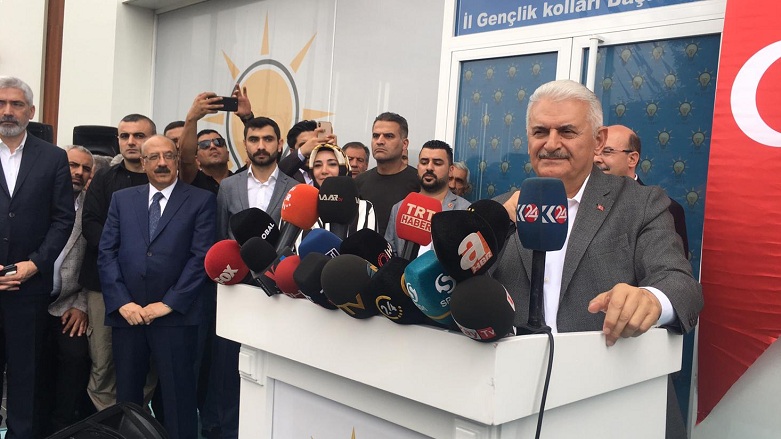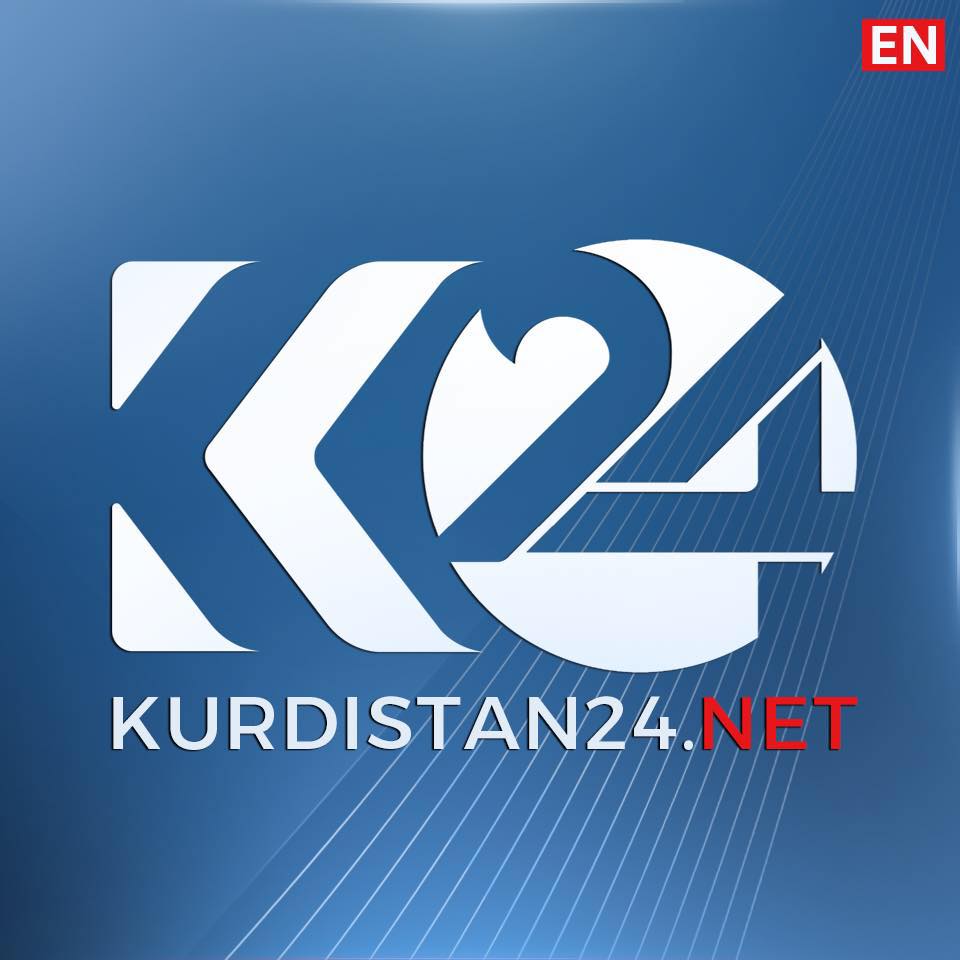AKP candidate for Istanbul says 'Kurdistan' while his government bans it

DIYARBAKIR (Kurdistan 24) – In what appeared to be an attempt to court Kurdish votes in Istanbul, Binali Yildirim, Turkish President Recep Tayyip Erdogan’s candidate for the mayor of the country’s largest city, used the word “Kurdistan” on Thursday, a word the very administration he belongs to has banned at the Parliament.
Yildirim, a close Erdogan confidante, was visiting the major Kurdish city of Diyarbakir for the campaign of a re-do local elections, 900 miles (1,450 kilometers) away in Istanbul where over a million Kurdish votes are now of crucial value to both the Turkish opposition and Erdogan’s ruling Justice and Development Party (AKP).
Yildirim said 250,000 Istanbul residents hailed from Diyarbakir, in a reminder for them to vote in the June 23 elections. His call was an affirmation of the much-alienated Kurds’ kingmaker position in Turkish politics.
Read More: Will Kurds become kingmakers in Turkish politics?
“There were representatives from Kurdistan, Lazistan, and Anatolia when Mustafa Kemal Ataturk convened the national congress in Ankara during the struggle for independence,” Yildirim told a small group of supporters in front of the AKP in Diyarbakir, after saluting them in broken Kurdish.
Yildirim, the former parliament speaker, and a low-key prime minister, was referring to a historical fact that was the case until Turkey’s founder Ataturk began the nation-building of a state centered around the Turkish ethnic identity after the independence in 1923 following the multi-national Ottoman Empire’s collapse.
Lazistan was the unofficial name of an eastern part of the Black Sea region where the minority Caucasian Laz people live.
Yildirim’s use of the word “Kurdistan” comes during a fierce phase of the Turkish-Kurdish conflict both at home and abroad in Iraq and Syria and, more significantly, at a time when the Ankara government has all but banned and criminalized the utterance of the word.

In the run-up to the nationwide local elections in March, Erdogan himself repeatedly condemned the pro-Kurdish Peoples’ Democratic Party (HDP) leaders for referring to the Kurdish homeland in Turkey and across the border as Kurdistan.
Questioning whether Kurdistan exists, Erdogan used harsh language and told anyone who utters its name to leave Turkey.
“If you love it so much, then get out of Turkey. Go to Northern Iraq. Kurdistan is there. There is no place for you in this country. We have our people and God backing us,” the Turkish president said in early March in a bid to consolidate votes from his religious and nationalist base.
Read More: ‘No country for you,’ Erdogan tells HDP for saying Kurdistan
As the HDP decided not to field a candidate in Istanbul – a city with 10.5 million voters that gets nearly 13 percent of votes – the opposition-backed the People’s Republican Party (CHP) candidate Ekrem Imamoglu won a small margin of 13,000.
Turkish invasions of Kurdish regions in Iraq and Syria, mounting civilian casualties, and Ankara’s fierce opposition, as well as threats to the Kurdistan Region’s 2017 attempt at independence under Erdogan’s watch, were enough justification for the Kurds to help deliver an embarrassing defeat to the AKP in the ballot box in Istanbul.
The opposition’s shocking victory against 25 years of Islamist rule prompted weeks-long objections by the AKP that eventually led to cancelation by the country’s supreme electoral board over alleged polling irregularities.

Since then, the AKP and Erdogan, being the president at the forefront for the campaign to recapture Istanbul, have adopted a milder language toward the Kurds.
It remains to be seen if Istanbul’s Kurdish votes will swing to his side amid their recent history with the AKP, but for now, the reaction from the Kurds has not been as welcoming as Yildirim might have hoped.
“The word Kurdistan remains banned at the Parliament. Doesn’t Binali know this? Then he says ‘Kurdistan’ in Diyarbakir. Be a little consistent,” HDP’s Diyarbakir lawmaker Imam Tascier wrote on Twitter.
Read More: Kurdish party reiterates support for Turkey opposition in re-do Istanbul elections
In 2017, the AKP-dominated Turkish Parliament banned the word Kurdistan along with some other terms such as “genocide” about the early 20th century Ottomans’ systematic extermination and displacement of the Armenian people.
In the following months, the then MP and former Mayor of Diyarbakir Osman Baydemir was banished for two legislative sessions from the Turkish Parliament and fined 12,000 Liras (then approx. 3,100 USD) for uttering “Kurdistan.”
Turkish judicial authorities have also repeatedly banned books for having Kurdistan in their title. In widening the scope of the crackdown, the Turkish government successfully lobbied Google late last year to take down a custom-made map of the Greater Kurdistan.
“Binali Yildirim has used the word ‘Kurdistan.’ However, two years ago, [authorities] launched an investigation against me for using the word ‘Kurdistan.’ Let’s see if Mr. Binali, too, will be investigated,” Nurcan Baysal, a local journalist writing for the international media, tweeted.
Editing by Karzan Sulaivany
(Kurdistan 24’s Diyarbakir bureau contributed to this report)
